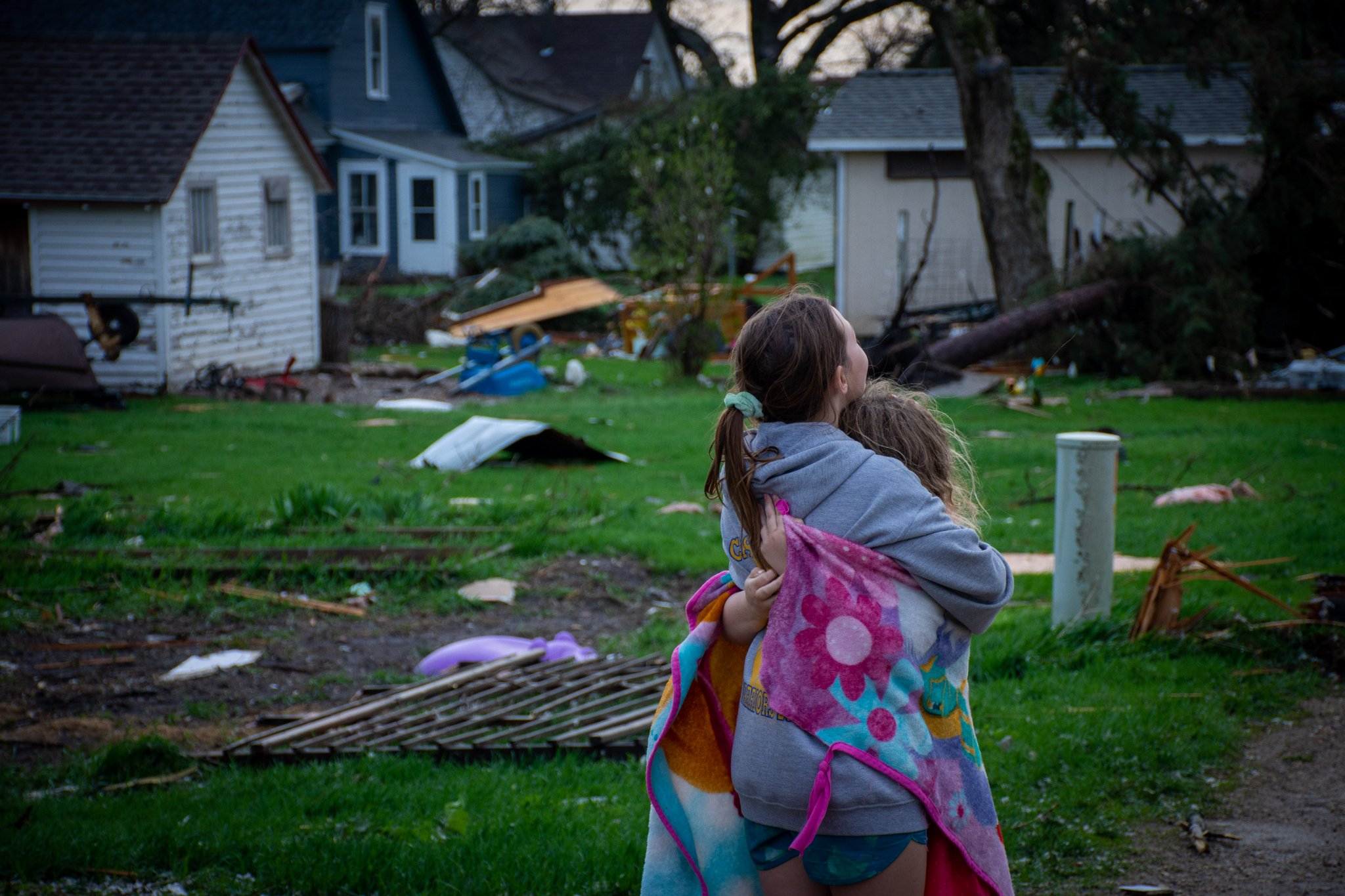What we’re watching: Weekly disaster update, May 16

We know all too well that disaster can strike at any time, in any place in the world. Some disasters make headlines; others do not. Here at the Center for Disaster Philanthropy, we keep an eye on the status of disasters worldwide and compile a list of the ones we’re tracking weekly, along with relevant disaster-related media coverage.
Here’s what we’re watching for the week of May 16, 2022.
New or Emerging Disasters
Storms – Upper U.S. Midwest: Severe storms with winds more than 100 miles per hour swept across eastern South Dakota and western and central Minnesota on May 12. At least three people were killed and winds caused widespread damage to buildings, power lines and trees. South Dakota Governor Kristi Noem issued an emergency declaration and said damage reports were received from 28 counties. The storm was fueled by a sprawling heat dome responsible for setting record highs and met some criteria of a derecho.
Previous/Ongoing Disasters
Tropical Cyclone – Mozambique: Cyclone Gombe made landfall over the coastal area of central Nampula province on March 11. Gombe was the fifth tropical storm or cyclone to hit the country along its northern coastal areas since the start of this year. More than 736,000 people were affected by the Cyclone, and nearly 225,000 acres (91,000 hectares) of crops were lost. Recovery is complicated by what a United Nations High Commissioner for Refugees (UNHCR) representative called the “twin challenges of conflict and climate shocks,” with the country facing an “’invisible’ crisis while humanitarian operations are restricted by chronic underfunding.”
Wildfire – New Mexico: The Calf Canyon Fire and Hermits Peak Fire in northern New Mexico merged into what has become the largest active wildfire in the U.S. and the second-largest wildfire in the state’s history. As of May 15, the fire burned 288,968 acres and was 27% contained. On May 3, President Biden approved a major disaster declaration for New Mexico (DR-4652-NM) in response to the wildfires. The fire is approaching the Cooks Peak Fire, roughly 40 miles north of Las Vegas.
For more, see the 2022 North American Wildfires disaster profile.
Humanitarian Crisis – Ukraine: As of May 15, more than 6.2 million refugees have left the country since Feb. 24, according to the United Nations High Commissioner for Refugees. As of May 5, United Nations (UN) agencies and partners have reached more than 5.4 million people with life-saving assistance. According to the UN, “The delivery of humanitarian aid remains exceptionally challenging, with only small levels of assistance being provided in the areas currently affected by active hostilities.” On May 5, USAID Administrator Samantha Power announced nearly $387 million in additional humanitarian assistance for Ukraine.
According to Candid, 791 grants worth $1,047,281,397 have been granted so far, with an additional 157 pledges worth $679,970,680. Funders can share their grants data with them by emailing egrants@candid.org.
For more, see the Ukraine Humanitarian Crisis disaster profile and Ukraine Humanitarian Crisis Recovery Fund.
Worldwide – Coronavirus:
Key facts as of May 16:
- Worldwide, cases have surpassed 521 million.
- There have been more than 491 million recoveries and over 6.2 million deaths.
- The highest number of cases are in the U.S. (84.2 million), followed by India (43.1 million), Brazil (30.6 million) and France (29.1 million).
- Worldwide, 65.6% of the global population has received at least one dose of a COVID-19 vaccine. This number drops to only 15.9% in low-income countries.
Other notable news:
- After acknowledging its first COVID-19 cases, North Korea imposed a nationwide lockdown on May 12. According to state media, six people have died and 350,000 have been treated for a fever that has spread “explosively” across the country.
For more, see the COVID-19 Coronavirus disaster profile.
U.S. Midwest Low-Attention Disasters
The Midwest is regularly faced with low-attention disasters that affect people across the region. CDP’s Midwest Early Recovery Fund (ERF) effectively funds efforts that catalyze equitable disaster recovery.
These are some of the latest disasters the ERF team is monitoring:
- There were more than 100 reports of severe weather across Minnesota on May 11. The storms prompted tornado warnings and damages were reported in western portions of the state.
- The Red River Valley in Minnesota, North Dakota and Manitoba is facing some of its worst flooding in a decade. The Red River remained in major flood stage at Oslo, Minnesota. North Dakota Governor Doug Burgum surveyed flooding in northeast North Dakota on May 9.
- The town of Seminole, around 60 miles southeast of Oklahoma City, was hit by multiple tornadoes last week that damaged structures and led to power outages. Seminole Public Schools will be out of the classroom until May 16 and teachers and students were out in the community, serving wherever there is a need.
Complex Humanitarian Emergencies – Haiti
Many places worldwide are experiencing emergencies caused by conflict, climate change, drought, famine, economic challenges and other conditions that combine to create a complex humanitarian emergency (CHE). CDP maintains complete profiles on several CHEs.
Haiti became the world’s first Black-led republic and the first independent Caribbean state when it threw off French colonial control in 1804. However, the country is regularly exposed to natural hazards and the effects of climate change and faces recurring socio-economic and political challenges.
The COVID-19 pandemic, gang violence and a magnitude 7.2 earthquake that affected more than 800,000 people in August 2021 have increased humanitarian needs. According to the 2022 Humanitarian Needs Overview, 4.9 million Haitians, 43% of the population, will need humanitarian assistance this year.
Access to health care facilities remains a major concern as earthquake damage further limits access to health services. Food security is another top concern, with 4.5 million people in crisis or emergency situations. According to the UN, “Hunger levels are rising unabated as persistent political instability, growing inflation and recurrent disasters continue to conspire against the people of Haiti.” Vaccination against COVID-19 is progressing slowly while the number of confirmed cases and deaths continues to decline.
Additionally, gang violence has worsened after President Jovenel Moise’s July 2021 assassination. The violence has displaced thousands, and since April 24, at least 75 people have been killed and 68 injured. Main roads linking the capital, Port-au-Prince, to the south have been difficult to pass, which severely restricts humanitarian support from reaching earthquake-affected areas.
What We’re Reading
- Artificial intelligence tapped to fight Western wildfires – The Associated Press: By generating more timely information about on-the-ground conditions, Lockheed Martin says they can map fire perimeters in minutes rather than the hours it can take now. While recognizing the help technology provides, fire experts caution that there will always be a need for “ground-truthing” by people.
- Farmers in the Plains are in ‘dire straits’ due to drought, wildfire conditions – KOSU: “Even with a few recent rains, much of the Great Plains are in a drought. Wildfires have swept across the grasslands and farmers are worried about how they’ll make it through the growing season.”
- World ‘at a crossroads’ as droughts increase nearly a third in a generation – United Nations: The UN Convention to Combat Desertification’s newly published report, Drought in Numbers, points towards upward trends in the duration of droughts and the severity of impacts. The report calls for a shift from reactive approaches to proactive and risk-based drought management approaches.
- Donors fall well short of UN target for Syria aid – The Washington Post: For the second year in a row, pledges from donors to help Syrians and neighboring countries hosting refugees fell short of a UN target. According to the UN, 14.6 million people in Syria rely on aid – 1.2 million more than in 2021.
- Fund secures $100 Million to benefit climate change initiatives for people of color – National Public Radio: Isabelle Leighton of the Donors of Color Network discusses securing $100 million in pledges to fund environmental justice initiatives centered on communities of color. Leighton said, “There is a lot of opportunity for philanthropy to move quickly and to really fund these groups.”
The Eurovision Song Contest, Europe’s popular continent-wide music competition, was this past weekend. Ukraine’s Kalush Orchestra won the contest in a symbolic show of public support. Their winning performance is a unique blend of Ukrainian folk melodies and contemporary rap.
